Best Vitamins for Menopause: Supporting You Naturally
Typically occurring between the ages of 45-60, menopause is a natural change in a woman’s life that can disrupt her day-to-day life for a number of years. Hot flashes, mood swings, fatigue and weight gain are just a handful of symptoms that can make you feel like a completely different person. But with some knowledge and understanding, we think women have the right to explore natural supplements and the best vitamins for menopause to help support their body and embrace change this menopause awareness month.
Understanding Menopause and Perimenopause 🤔
Menopause and perimenopause are much alike, but with one main difference. When women reach menopause, their hormone levels have dropped very low which stops their period. This is a naturally occurring process, but other factors can also induce menopause. Perimenopause is the transitional phase before women’s periods stop completely. They slow down as hormone levels start to decrease, and this phase can last anywhere from a few months to a few years.
Understanding the Symptoms 😓
Symptoms can vary from woman to woman, but the most common symptoms of menopause and perimenopause are usually a shared experience. The most commonly reported symptoms include:
- Hot flashes
- Night sweats
- Fatigue
- Mood swings
- Weight fluctuation
- Joint pain.
Women also talk about other symptoms like itchy skin, low mood, vaginal dryness, and breast pain on menopause forums. Read more about uncommon menopause symptoms here.
It’s not hard to imagine the impact these have on the quality of womens’ lives, making it important to try and explore what options are available to help manage symptoms effectively. Women are turning to natural menopause options more and more so that they can feel empowered through these changes, by choosing supplements that support their overall health and are kind to the planet, while helping to alleviate some of these symptoms.
Best Vitamins for Menopause 🌞
A variety of vitamins and minerals play an important role in managing hormone levels and menopause symptoms.
- Vitamin B6 is one of the best vitamins for menopause as it’s essential for normal brain development; having low levels of B6 are commonly linked to low mood and skin changes.
- Vitamin E is a fat soluble antioxidant, and has been shown to help reduce hot flashes. This makes it one of the best vitamins for menopause symptoms.
- During and after menopause there is an increased risk of osteoporosis. Supplementing Calcium to support bone health, as well as Vitamin D with its many other benefits is important and makes them some of the best vitamins for menopause.
If you’re looking into natural options you might be wondering, can you take vitamins for menopause with HRT? Although taking supporting vitamins and supplements alongside hormone replacement therapy is usually fine, it’s best to consult your GP first.
Top 5 Essential Ingredients in the Best Vitamins for Menopause 🌾
Hello Wellness believes in the power of nature to promote overall well being and support women going through menopause. These are the top 5 ingredients:
Oat Straw for menopause (Avena sativa):
Oat straw is packed full of B vitamins, and also high in iron, manganese and zinc. It relieves symptoms of menopause by helping with hormone balance and energy metabolism. It also has a relaxing effect, helps with insomnia, mental and physical fatigue and supports skin health too.
Alfalfa Leaf for menopause (Medicago sativa):
Alfalfa leaf is nutrient dense, packed with Vitamins A, C, E and K as well as essential minerals calcium and magnesium. This helps symptoms like fatigue and joint pain, supports normal bodily function and overall health, making this multitasker a popular ingredient in the best vitamins for menopause out there.
Red Clover for menopause (Trifolium pratense):
Red Clover supports symptoms of menopause, such as hot flashes and irritability due to its phytoestrogens, which mimic the effects of oestrogen in the body and anti-inflammatory properties that can help with skin changes.
Fenugreek Seed for menopause (Trigonella foenum-graecum):
Fenugreek seeds have been used for years in alternative medicine, most commonly to support hormone balances and blood sugar levels. This can alleviate hot flashes and may also help manage weight fluctuations, a common concern during menopause.
Nettle for menopause (Urtica dioica):
Nettle has been used in traditional medicine for centuries, and is still a popular ingredient in the best vitamins for menopause. With anti-inflammatory properties that can help with pain and itching, as well as being high in iron, Nettle is beneficial for women experiencing fatigue and trouble sleeping.
The Best Vitamins for Menopause: Supporting Your Natural Menopause Journey 🤗
At Hello Wellness we understand that having natural options for managing your symptoms is important, but it doesn’t have to be overwhelming trying to navigate your menopause journey.
Support your body naturally with Hello Menopause, the perfect blend of essential vitamins and UK-native herbs all in one daily capsule. Click here to start your natural menopause journey today.
“You’re not alone during this time, natural options are accessible and support is available by speaking to your GP or joining a menopause forum – I’m a member of the Menopause Experts group, and they produce a great monthly magazine” – Sonia, Founder of HelloWellness.
By choosing to prioritise your health and well-being with sustainable, eco-friendly, UK based products you can take on this new chapter of your life with confidence. As a family-owned business, Hello Wellness is committed to sustainability, and we’re proud that even our pots are made from plants!
Read more about our sustainability promise here.
Disclaimer: This blog post is intended for general guidance and entertainment purposes only. The information provided here is not a substitute for professional medical advice, diagnosis, or treatment. We recommend seeking the advice of a qualified and experienced naturopath or health practitioner before making changes to your health regimen, including the use of herbal supplements. If you experience symptoms of menopause or any other health concerns as described above, it is important to consult with a healthcare professional for a proper diagnosis and appropriate treatment.
